
REPORTAGE
27-04-2021 by Freddie del Curatolo
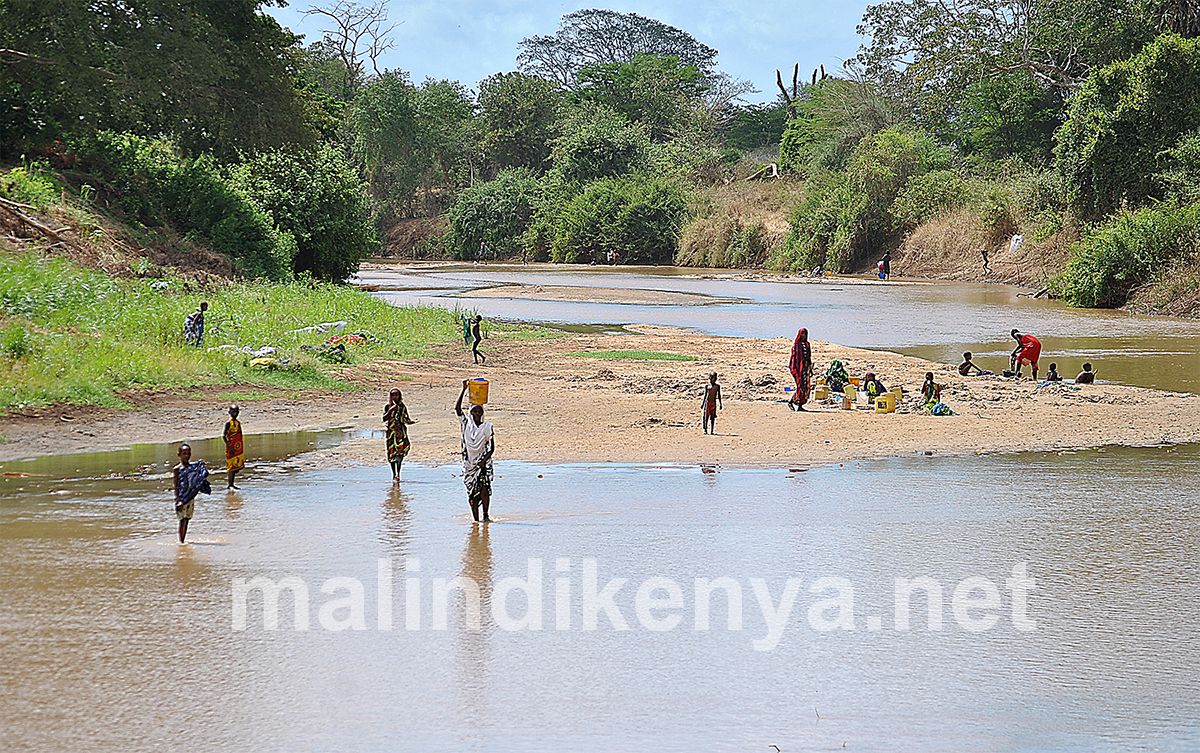
Malindi, among the many aspects that have made it a safe haven for so many peoples and cultures over the centuries, has the merit of being a fixed point (today's globalisers of communication, who have chosen business English as their official language, would say "hub") in which to make camp in order to immerse oneself in completely different realities which, in the space of a two-hour drive along roads that are almost always practicable and safe, transport us to an African dimension in itself.
This time we are in the north.
We cross the bridge over the Sabaki River, pass Mambrui and the Ngomeni junction (about 30 km from Malindi), which leads to Ungwana Bay and the well-known "Luigi Broglio" Italian Space Centre.
Along the tarmac road leading to Garsen we come across the salt pans, vast white spaces that in the sunlight appear like blinding mirrors from which trucks leave daily for all of Kenya. Then we pass through the large villages of Gongoni and Marereni and where the main road leaves the coastal strip, we leave the asphalt and embrace the red earth that immediately transports us away from time and to an unspecified distance from civilisation. The road runs through a no man's land that flanks the first branches of the Tana river in its very wide delta and leads to the sea, in places of swamps and mangroves where the white beaches of the coast are a memory and the coral hides insidiously among expanses of brown mud that reach out to kiss the Indian ocean.
Here we immediately notice that the ethnicity of the inhabitants has changed. The Giriama make way for Kenyans of Nilotic and Somali origin. The nomadic Orma shepherds are trying to coexist with the more sedentary Pokomo farmers. The former have to be very careful that their herds do not encroach on Pokomo fields, while the latter must not close off the access roads to the river to their cattle and their owners.
Clashes, even bloody ones, between opposing factions are not uncommon, and (as the media wrongly, if not maliciously, propagandized for years) they are not the result of ethnic or social intolerance: at the centre of it all is man's main need, water.
We arrive in Tarasaa, a village precariously balanced on an arid nowhere, whose salvation lies in the long green line of plants lining one of the secondary waterways.
We decide to leave the dirt road behind as well and go deeper to discover the world behind the veil of the thin forest. And here we come out into the promised land, into the only fortune of these forgotten moors, of a rural misery that makes no noise, makes no news except when what our astonished eyes are witnessing cannot happen, because even the river has dried up.
Orma and pokomo families together, as if to purify body and soul in the widest bend of the Tana River, before it becomes impassable and disappears into the jungle that abounds with crocodiles and hippos and leads to the mouth of Kipini.
An unspoilt valley of serenity in the wild, made up of the work songs of mothers rinsing their clothes, the shrieks of naked children splashing around, cows drinking, and orma girls filtering the river water and loading it into twenty-litre tanks which they then put on their heads, ready to walk for kilometres and kilometres back to the village.
The pokomo farmers do the same, but they keep their distance. They need the water to keep the fields alive, and the vegetables they grow are often sold at the small market in Tarasaa for the footprint.
Following the example of Monsignor Virgilio Pante, who created the inter-ethnic markets in Samburu to help tribes that have always been in conflict (and the conflicts there are bloody) understand the real reasons for the feuds and how they can be resolved through fair trade, we discussed these issues with Orma and Pokomo and the situation is improving, even though the pandemic crisis has increased poverty and uncertainty. Those who live in these areas often send their children to school with relatives who live at least 200 kilometres north, between Garsen and Garissa on the road to Somalia.
These are Islamic schools, which often provide common meals and a bed to sleep in for a small fee. It is not a real "boarding", but a form of help that the Catholic schools here are careful not to offer. With the prolonged closure of the schools, the boys and girls have returned home and must be fed.
In the first hinterland of Malindi, an old man explains, you always find a fruit tree, good wild herbs that if you know how to recognise them will help you get through the day (think of the word "sukuma wiki", one of the most popular field herbs, it literally means "to push the week away").
Here in Tarasaa there is no fruit, and the few cultivated fields are protected from intruders with machetes. Hunger is something tangible, in the thinness of many infants, in the hunched men who have lived half a life of hardship, and the other half they will not live.
We proceed to Galtama and from there to the sea.
The only resource for these people might be fish, but it is the Bajuns who have the boats and the trade in hand. They know how to find shrimp in the branches of the Tana River, dry them in the sun to make them tastier and roast them over charcoal to sell them in the shanties of each small village. A few have learned to cast their nets, but they have to be careful: salt water is also water, and it brings interest and revenge.
In the midst of a hard-fought, controversial nowhere, never lacking the humanity that transpires in the looks of welcome, need and hope, and almost never hostility, reserved for the white man, we also find a small resort opened by young kitesurfing and mangrove safari enthusiasts. Rich people's stuff, because nowadays it seems that the real privilege is freedom, the ability to disconnect from the world, far from civilisation.
Hopefully this will bring those who understand it closer to the meaning of life, which could be much less hard and difficult for a good part of people, and more human and spiritually fulfilling for the other part.
We return from this hidden corner, certain that we have come to know and understand another small and significant reality just a stone's throw from that reassuring, ancestral, pro-Western, but sometimes too unconscious home that is Malindi.
NEWS
by Freddie del Curatolo
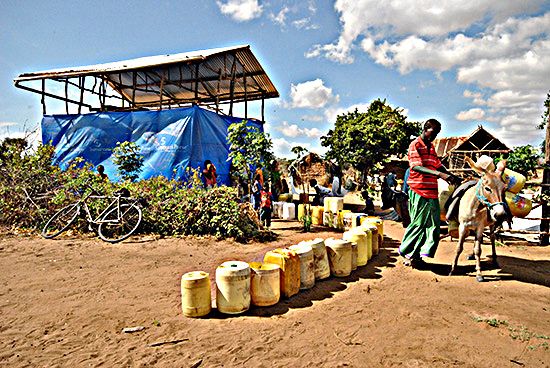
Climate change and pandemic, a lethal mix that has created 400 thousand new hungry people on...
ENVIRONMENT
by Leni Frau
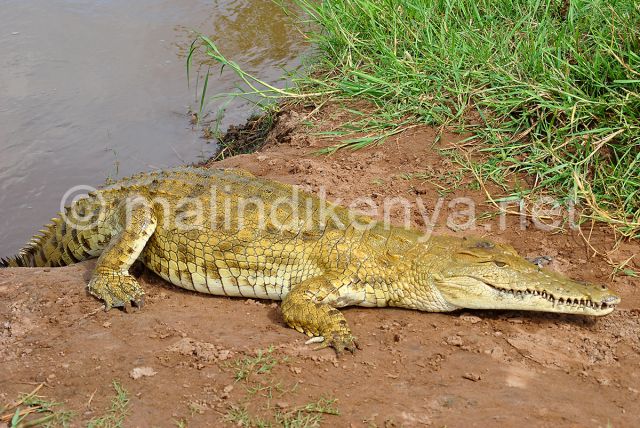
Crocodile egg collecting is becoming a business for those living in the riverine areas of Kenya. Clearly...
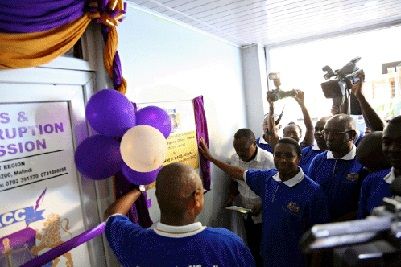
The Commission office Ethics and Anti-Corruption (EACC) for the North Coast of Kenya inaugurate the office in Malindi.
It was the Deputy Director General of the Commission, Michael Mubea, to formally open the seat, after a week of awareness in...
STORIES
by Freddie del Curatolo
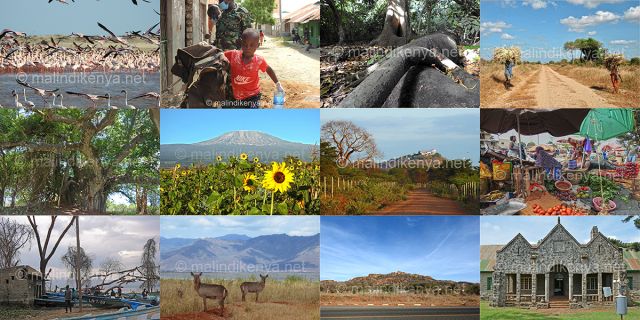
Another difficult year has passed, the second in which we have tried to travel as much as possible around...
CORONAVIRUS
by redazione
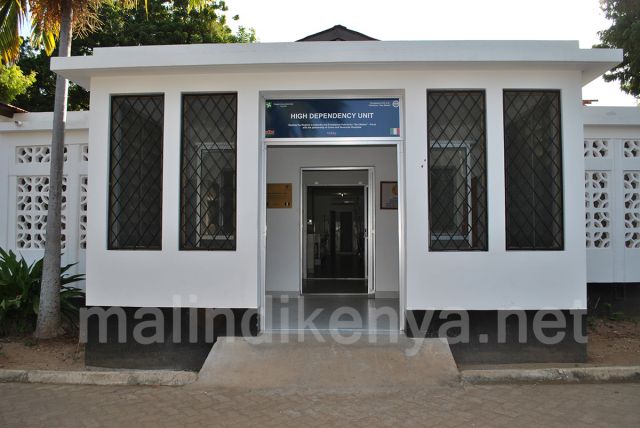
While yesterday the Ministry of Health announced the official data for the last 24 hours, reporting...
WILDLIFE
by redazione
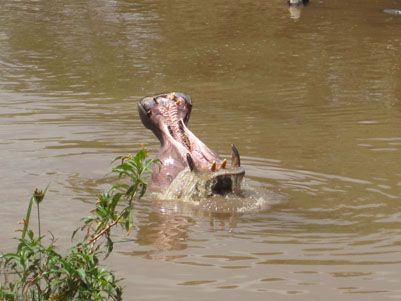
It's a desperate operation to save hundreds of hippos in the Tana River region, one hundred and fifty kilometers north of Malindi.
We are in the Lamu district, where the most important river forms a delta of Kenya which also...
LATEST NEWS
by redazione
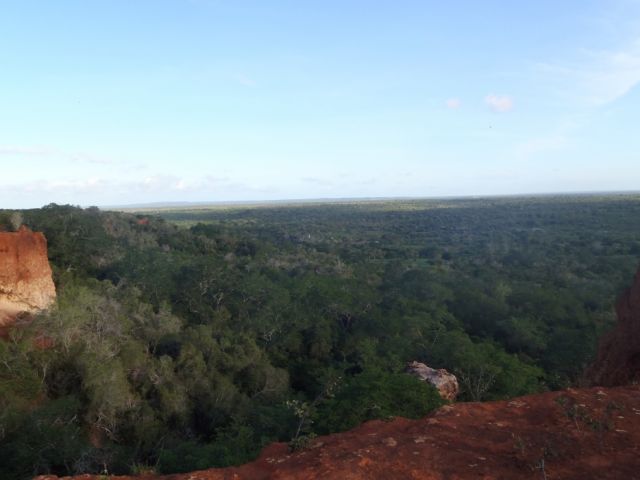
These are important moments, perhaps decisive, for the resolution of the dramatic story of the kidnapping of Silvia Romano, who for a week now has been in the hands of a band of criminals hidden in the Tana River Forests...
ADVENTURES
by redazione
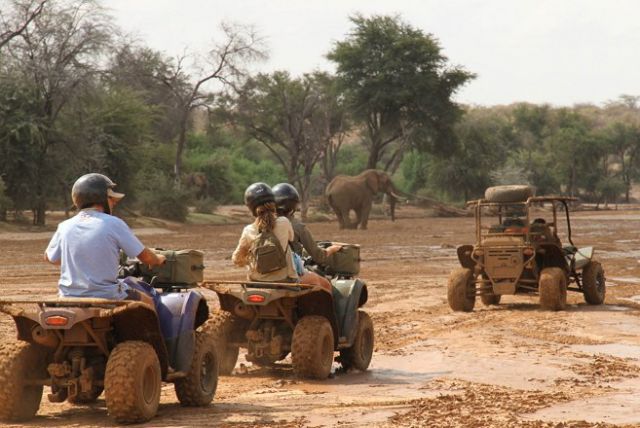
Kenya is one of the most varied and extraordinarily rich in unique opportunities, excitement for everyone and attractions for any type of adventure enthusiast or expert. If for many people the African country is above all synonymous with wild nature,...
NEWS
by redazione

The food emergency in the hinterland of Malindi and Kilifi (as well as in the whole of Kenya) that puts the...